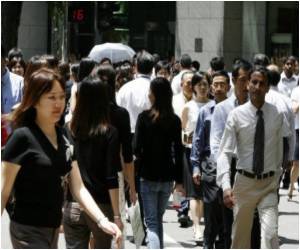Rapid urbanization with an uncontrolled population growth has interfered with global efforts to provide access to clean, drinking water, states a UN report at a conference in Stockholm.

The United Nations General Assembly recognised access to safe drinking water as a human right this past July, and in recent decades, global efforts had helped hundreds of millions of people gain access to the basic necessity.
Countering these positive trends however is the massive population growth seen around the globe.
Between 2000 and 2008, the world's population increased by 635 million people, 80 percent of whom live in urban areas, according to UN numbers.
"In the urban half of the world, despite having provided access to water or sanitation services to hundreds of millions of additional people, the current policies have been unable to prevent the situation worsening," AquaFed said.
"The proportion of the urban population that benefits from satisfactory access to drinking water or sanitation is decreasing," it said, pointing to UN statistics showing that 114 million more people went without access to tapwater at home or in the immediate vicinity at the end of the eight-year-period.
Advertisement
"Current efforts to develop access to water and sanitation in cities are outpaced by urbanisation," Payen said.








